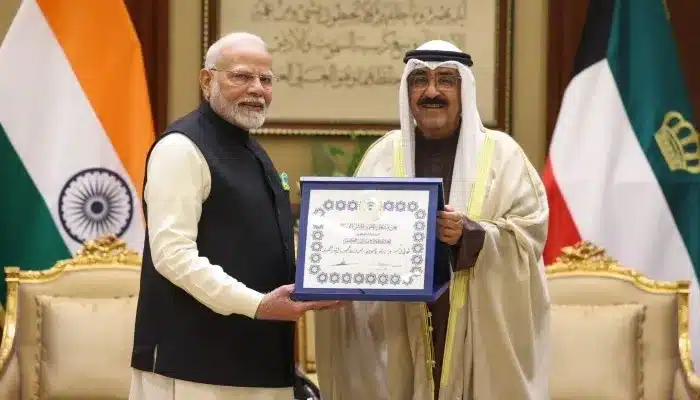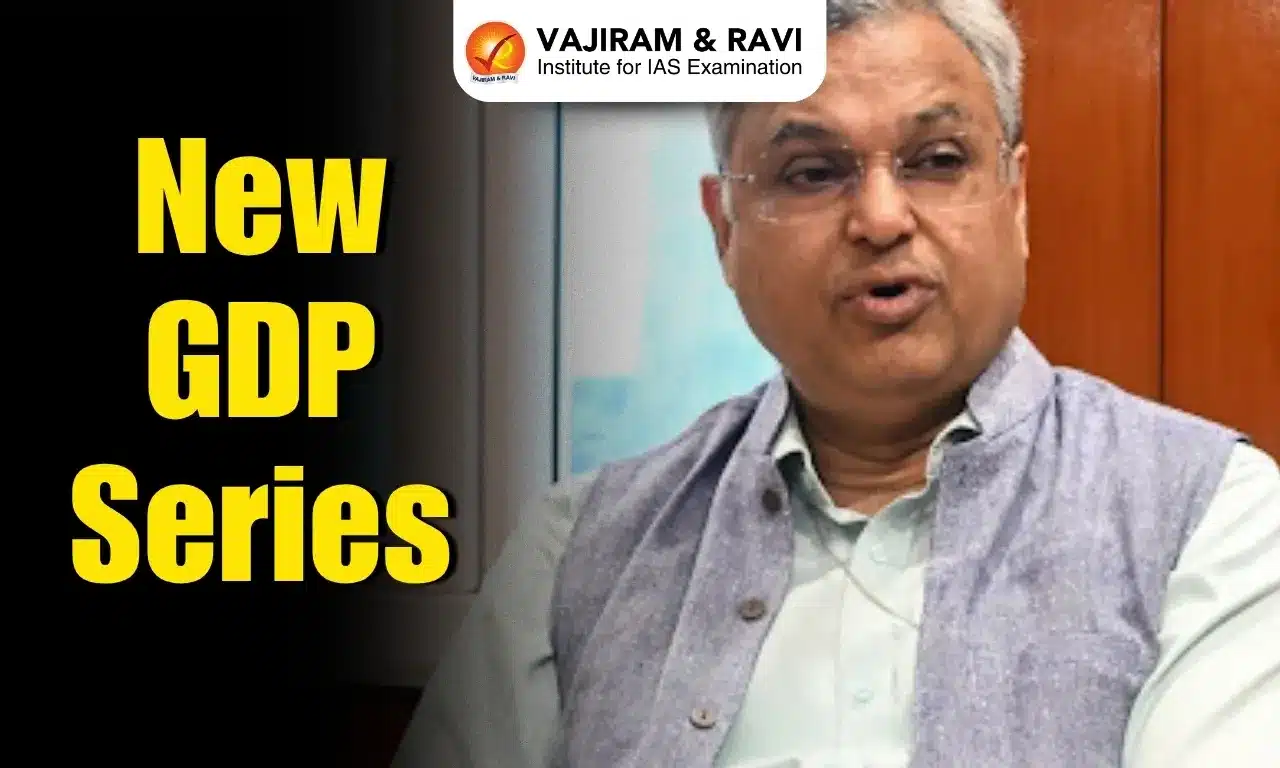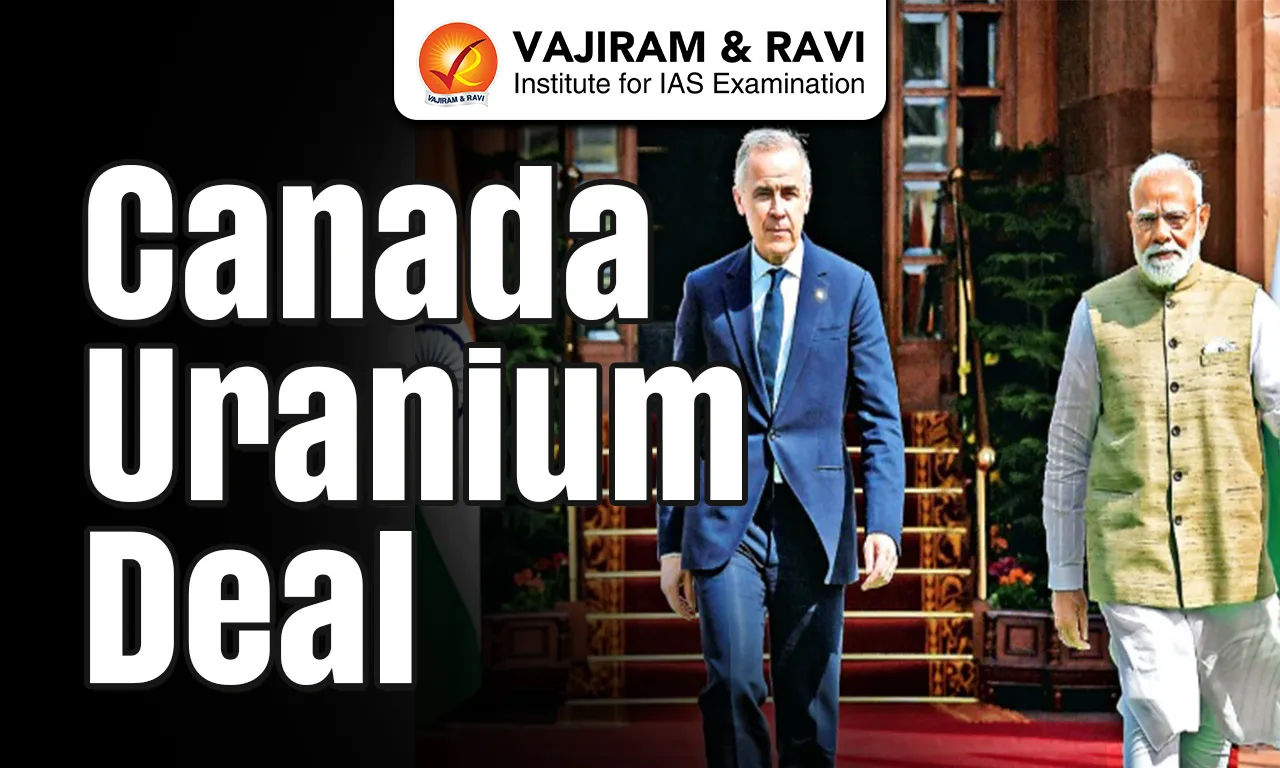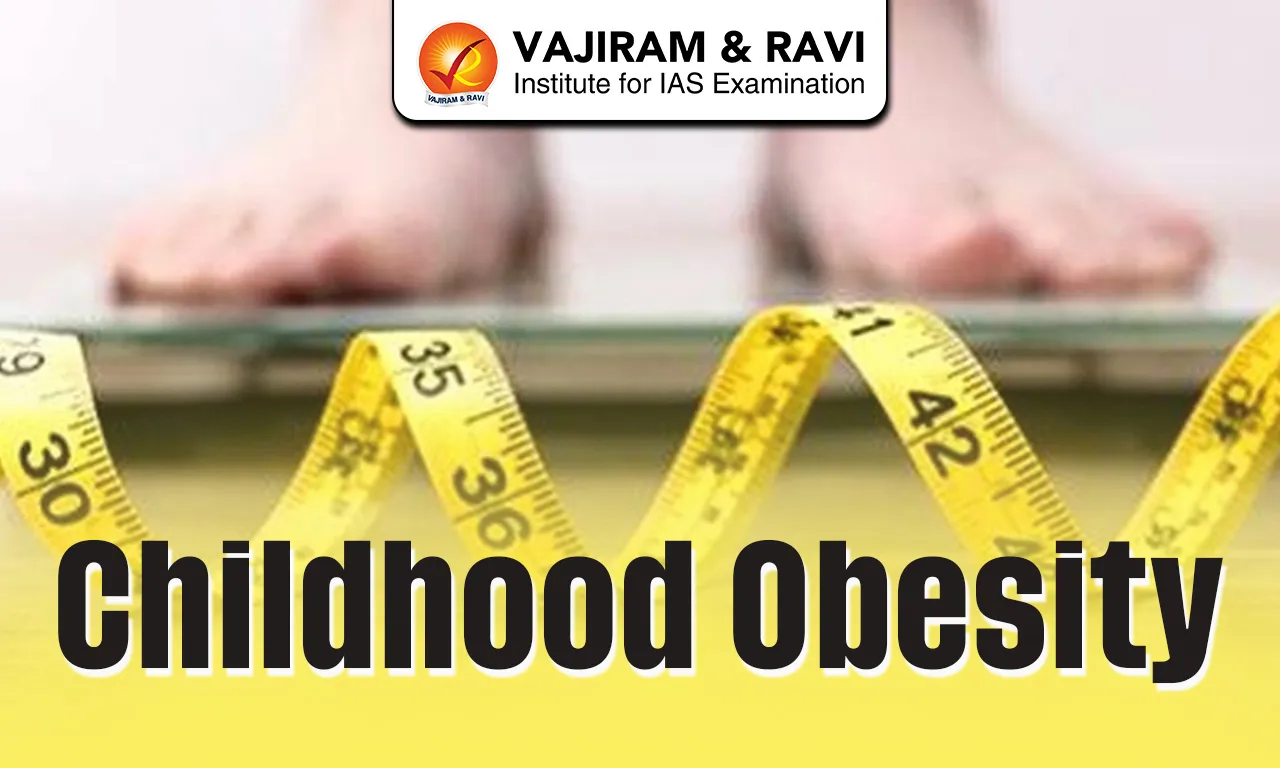What’s in today’s article?
- Why in News?
- A Brief About India-Kuwait Ties
- Historic Significance of the PM’s Recent Visit to Kuwait
- Implications of the PM Modi’s Recent Visit on the India-Kuwait Ties
- Conclusion
Why in News?
- Prime Minister Narendra Modi’s recent visit to Kuwait marked a historic milestone in bilateral relations, as the two nations elevated their partnership to a “strategic” level.
- This significant development underscores enhanced cooperation in trade, defence, etc., and India’s growing role in the Gulf region amidst evolving geopolitical dynamics.
A Brief About India-Kuwait Ties:

- Background:
- India and Kuwait enjoy traditionally friendly relations, which are rooted in history and have stood the test of time.
- India was one of the first countries to establish diplomatic relations with Kuwait following its independence from the British Protectorate in 1961.
- India has been a natural trading partner of Kuwait and until 1961, Indian Rupee was a legal tender in Kuwait.
- Current dynamics:
- Kuwait is India’s sixth-largest crude oil supplier, meeting 3% of its energy needs.
- Indian exports to Kuwait surpassed $2 billion for the first time. Kuwait Investment Authority’s investments in India exceeded $10 billion.
- The Indian community is Kuwait’s largest expatriate group, significantly contributing to the Gulf nation’s economy and development.
Historic Significance of the PM’s Recent Visit to Kuwait:
- First visit in 43 years: Modi’s two-day visit was the first by an Indian Prime Minister since Indira Gandhi’s visit in 1981.
- Recognition of leadership: Kuwait honoured Modi with its highest civilian award, ‘The Order of Mubarak Al-Kabeer,’ acknowledging his contribution to strengthening India-Kuwait ties.
- Engagement with Kuwaiti leadership: Modi met with:
- Amir Sheikh Meshal Al-Ahmad Al-Jaber Al-Sabah (first bilateral meeting).
- Crown Prince Sheikh Sabah Al-Khaled Al-Hamad Al-Mubarak Al-Sabah.
- Prime Minister Sheikh Ahmad Abdullah Al-Ahmad Al-Sabah.
- Strengthening bilateral relations:
- Defence cooperation: A comprehensive defence agreement was signed, covering areas like:
- Training and exchange of personnel.
- Joint military exercises.
- Supply and research in defence technology.
- Trade and economic ties:
- Kuwait is one of India’s top trading partners, with bilateral trade valued at $10.47 billion (2023-24).
- Modi invited the Kuwaiti Investment Authority to explore opportunities in energy, pharma, food parks, and infrastructure in India.
- Additional agreements: Three MoUs were signed in areas of: Sports, Culture, and Solar energy.
- Defence cooperation: A comprehensive defence agreement was signed, covering areas like:
- Expanding strategic cooperation: The elevation to a strategic partnership aims to deepen collaboration in sectors like:
- Pharmaceuticals
- IT and FinTech
- Infrastructure
- Security
- Vision 2035 alignment:
- Modi congratulated Kuwait on its developmental initiatives under ‘Vision 2035.’
- Both leaders expressed mutual commitment to achieving shared goals through increased cooperation.
Implications of the PM Modi’s Recent Visit on the India-Kuwait Ties:
- People-to-people connections: Acknowledgment of the 1 million-strong Indian community in Kuwait, appreciated for their contributions to the Gulf nation’s development.
- Regional and global implications:
- Collaboration with GCC:
- India expressed interest in intensifying cooperation with the Gulf Cooperation Council (GCC), leveraging Kuwait’s presidency.
- Focus on concluding the India-GCC Free Trade Agreement to boost trade volumes, which reached $184.46 billion (2022-23).
- Shared vision for West Asia:
- Discussion on ensuring peace, stability, and prosperity in the volatile West Asia region.
- Joint condemnation of terrorism and commitment to dismantling terror networks.
- Collaboration with GCC:
Conclusion:
- Modi’s visit has set the stage for a more dynamic and robust India-Kuwait partnership.
- With enhanced defence ties, expanded trade, and strategic alignment, this renewed relationship promises significant benefits for both nations and the broader Gulf region.
- Quote: “I dedicate this honour to the people of India and to the strong friendship between India and Kuwait,” PM Modi remarked, reflecting the spirit of the historic visit.
Q.1. What is the Gulf Cooperation Council (GCC)?
The GCC is a regional, intergovernmental, political, and economic union comprising Bahrain, Kuwait, Oman, Qatar, Saudi Arabia, and the UAE. The council’s charter was signed in 1981, formally establishing the institution.
Q.2. How is India’s relations with the Gulf Cooperation Council (GCC)?
GCC is a major trade and investment partner for India. While India maintains close political and economic connections with every nation, it has strategic partnerships with Saudi Arabia, the UAR, Kuwait and Oman. GCC contributes to 35% of India’s oil imports and 70% of gas imports.
News: India, Kuwait boost ties: Strategic partnership, key pact on defence | IE
Last updated on March, 2026
→ UPSC Notification 2026 is now out on the official website at upsconline.nic.in.
→ UPSC IFoS Notification 2026 is now out on the official website at upsconline.nic.in.
→ UPSC Calendar 2026 has been released.
→ UPSC Final Result 2025 is expected to be released soon.
→ UPSC will release the UPSC Toppers List 2025 with the Civil Services final result on its official website.
→ Check out the latest UPSC Syllabus 2026 here.
→ Join Vajiram & Ravi’s Interview Guidance Programme for expert help to crack your final UPSC stage.
→ UPSC Mains Result 2025 is now out.
→ UPSC Prelims 2026 will be conducted on 24th May, 2026 & UPSC Mains 2026 will be conducted on 21st August 2026.
→ The UPSC Selection Process is of 3 stages-Prelims, Mains and Interview.
→ Prepare effectively with Vajiram & Ravi’s UPSC Prelims Test Series 2026 featuring full-length mock tests, detailed solutions, and performance analysis.
→ Enroll in Vajiram & Ravi’s UPSC Mains Test Series 2026 for structured answer writing practice, expert evaluation, and exam-oriented feedback.
→ Join Vajiram & Ravi’s Best UPSC Mentorship Program for personalized guidance, strategy planning, and one-to-one support from experienced mentors.
→ Check UPSC Marksheet 2025 Here.
→ UPSC Toppers List 2024 is released now. Shakti Dubey is UPSC AIR 1 2024 Topper.
→ Also check Best UPSC Coaching in India


















